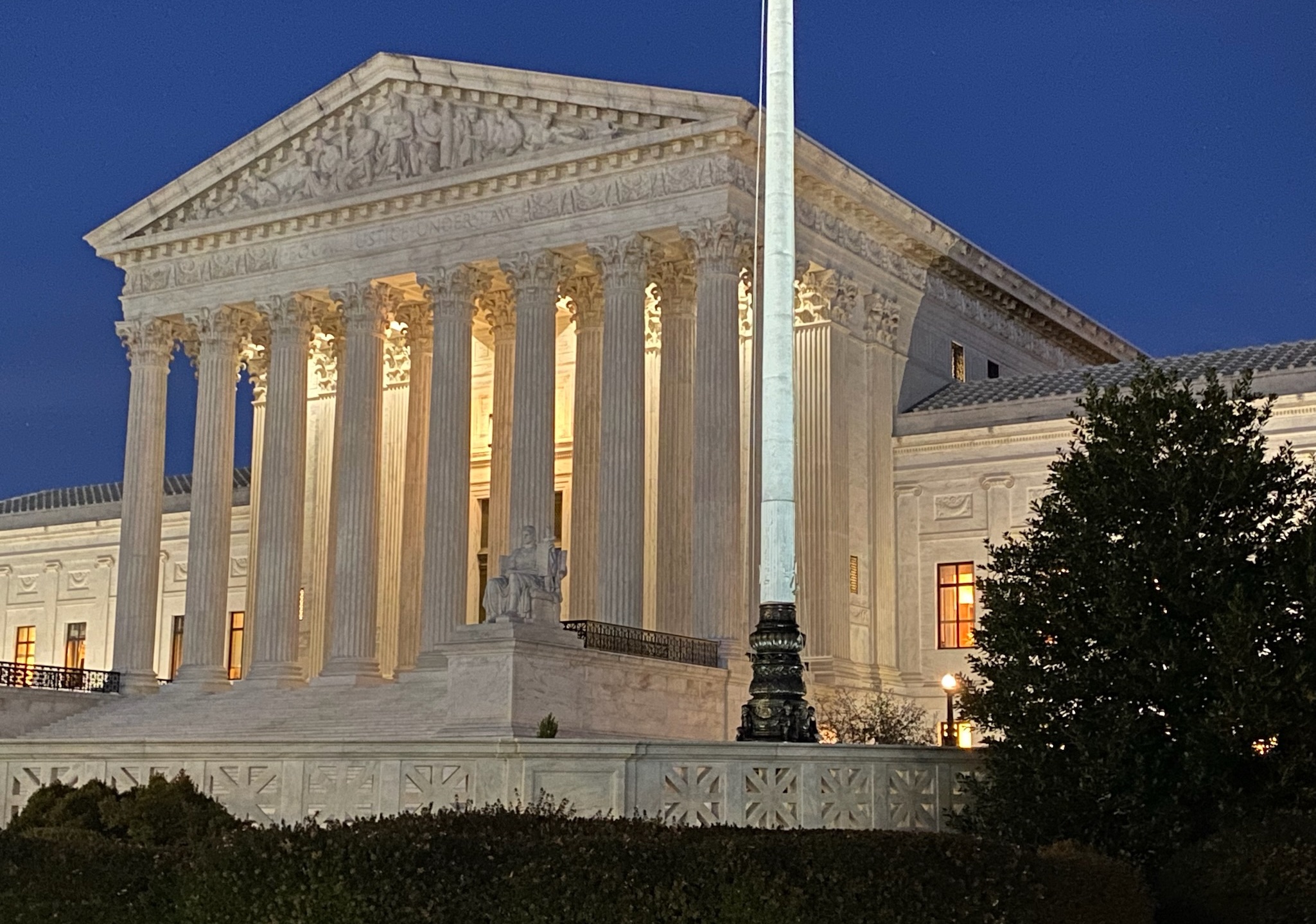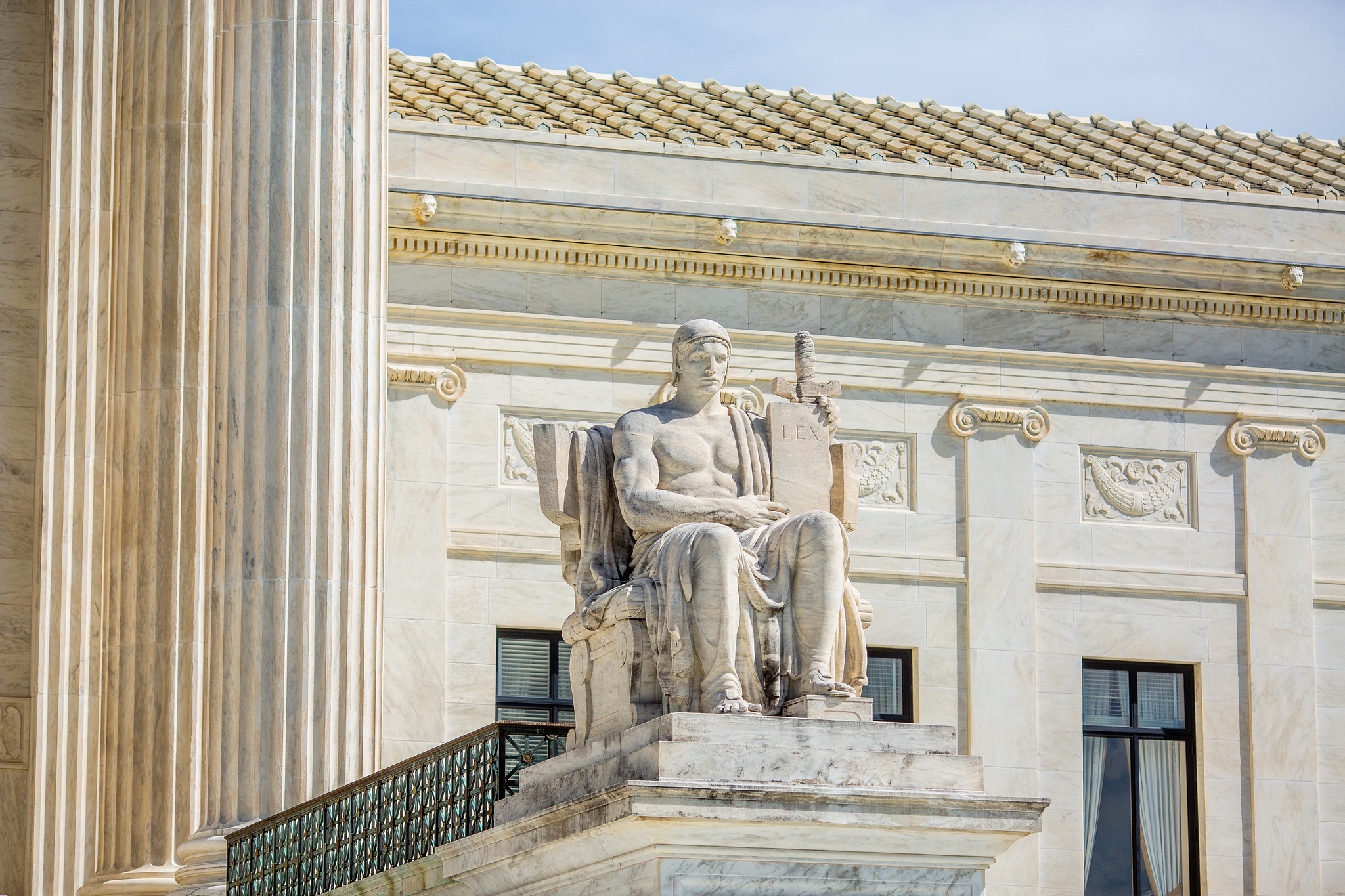Can fishermen be required to pay for federal monitors? And by the way – should Chevron be overruled?
RELIST WATCH
on Mar 30, 2023
at 1:31 pm
The Relist Watch column examines cert petitions that the Supreme Court has “relisted” for its upcoming conference. A short explanation of relists is available here.
This week’s update will be brief because of the press of business in my day job. The likeliest grant out of last week’s relists got the nod: The Supreme Court will decide in Acheson Hotels, LLC v. Laufer whether “testers” under the Americans with Disabilities Act have constitutional standing to challenge the ADA compliance of hotels they don’t plan to visit. But all was not sweetness and light. The court denied review to five-time relist Donziger v. United States, involving a separation of powers challenge to the appointment of private lawyers to prosecute a contempt of court. Justice Neil Gorsuch, joined by Justice Brett Kavanaugh, dissented from the denial of review.
That brings us to this week’s sole new relist: Loper Bright Enterprises v. Raimondo. The Magnuson-Stevens Act governs the management of fisheries in federal waters and provides that the National Marine Fisheries Service may require vessels to carry federal observers onboard to enforce agency regulations to prevent overfishing. The National Marine Fisheries Service construed the governing statute to allow it to require industry to pay the salaries of those monitors. A divided panel of the U.S. Court of Appeals for the D.C. Circuit held that the statute was reasonably read to allow the agency to require industry to pay the cost of federal monitors. In dissent, Judge Justin R. Walker wrote that “Congress unambiguously did not” authorize the agency to make fishermen “pay the wages of federal monitors who inspect them at sea.”
Before the Supreme Court, petitioners, a group of fishing companies, argue first that under a proper application of Chevron U.S.A. v. Natural Resources Defense Council, the Magnuson-Stevens Act does not grant the agency the power to require domestic vessels to pay the salaries of the monitors; they argue that while the agency is authorized to require monitors, it is silent about requiring industry to pay for them. But in addition to that plain-vanilla administrative law question, the petition has a second question that is a potential blockbuster: Whether the court should overrule Chevron or at least clarify whether statutory silence about the matter of payment constitutes an ambiguity requiring deference to the agency. The Chevron doctrine calls on courts to defer to federal agencies’ interpretations of ambiguous laws. Critics argue that this gives unaccountable bureaucrats too much power. Enough people think this case may have legs that a whopping fourteen amicus briefs were filed supporting the petition.
I hate to read too much into subjective impressions, but the government’s brief in opposition seems to me to have a tone that suggests that it is resigned to the fact that the court will grant review, at least on the narrower issue. But next term will become a lot more interesting if the court grants on the broader issue of whether to overrule Chevron. Tune in Monday!
This post may have been fairly plain, but I just wanted to point out that at least I made it all the way through without any bad fish puns. I wouldn’t be cod dead doing that.
New Relists
Loper Bright Enterprises v. Raimondo, 22-451
Issues: (1) Whether, under a proper application of Chevron v. Natural Resources Defense Council, the Magnuson-Stevens Act implicitly grants the National Marine Fisheries Service the power to force domestic vessels to pay the salaries of the monitors they must carry; and (2) whether the court should overrule Chevron, or at least clarify that statutory silence concerning controversial powers expressly but narrowly granted elsewhere in the statute does not constitute an ambiguity requiring deference to the agency.
(relisted after the Mar. 24 conference)
Returning Relists
McClinton v. United States, 21-1557
Issue: Whether the Fifth and Sixth Amendments prohibit a federal court from basing a criminal defendant’s sentence on conduct for which a jury has acquitted the defendant.
(relisted after the Jan. 13 conference; apparently held after the Jan. 20 conference)
Luczak v. United States, 21-8190
Issue: Whether this Court should overturn its decision in United States v. Watts, which holds that sentencing judges can consider acquitted conduct in imposing a sentence under the factors set forth in 18 U.S.C. § 3553(a).
(relisted after the Jan. 13 conference; apparently held after the Jan. 20 conference)
Shaw v. United States, 22-118
Issues: (1) Whether the jury clauses of Article III and the Sixth Amendment or the due process clause of the Fifth Amendment bar a court from imposing a more severe criminal sentence on the basis of conduct that a jury necessarily rejected, given its verdicts of acquittal on other counts at the same trial; (2) whether the Supreme Court’s decision in United States v. Watts should be overruled; and (3) whether, in avoidance of the constitutional question, the rules of issue preclusion, as applied in federal criminal cases, bar imposition of an aggravated sentence on a factual predicate necessarily rejected by the jury at trial in the same case.
(relisted after the Jan. 13 conference; apparently held after the Jan. 20 conference)
Karr v. United States, 22-5345
Issues: (1) Whether the Fifth and Sixth Amendments prohibit a federal court from basing a criminal defendant’s sentence on conduct underlying a charge for which the defendant was acquitted by a jury; (2) Whether it violated the Due Process Clause of the Fifth Amendment for the district court to sentence Karr based on a 20-year-old, out-of-court statement, never subjected to cross-examination, made by the more-culpable but now-deceased coconspirator, who had been attempting to obtain, and did obtain, a more-favorable resolution to the same criminal charges Karr faced.
(relisted after the Jan. 13 conference; apparently held after the Jan. 20 conference)
Bullock v. United States, 22-5828
Issues: (1) Whether the Fifth and Sixth Amendments prohibit a federal court from basing a criminal defendant’s sentence on conduct for which a jury has acquitted defendant; (2) whether the Fifth and Sixth Amendments prohibit a federal court from basing a criminal defendant’s sentence on conduct which was charged in a different jurisdiction, tried before a different court, overseen by a different judge, and for which the defendant was previously acquitted.
(relisted after the Jan. 13 conference; apparently held after the Jan. 20 conference)
Brown v. Louisiana, 22-77
Issue: Whether, where a defendant denies participating in a particular criminal act, another person’s confession stating that he and someone else committed the act — without mentioning the defendant — is favorable and material evidence under Brady v. Maryland.
(record requested Oct. 18; relisted after the Feb. 17, Feb. 24, Mar. 3, Mar. 17 and Mar. 24 conferences)
Carnahan v. Maloney, 22-425
Issue: Whether individual members of Congress have Article III standing to sue an executive agency to compel it to disclose information that the members have requested under 5 U.S.C. § 2954.
(relisted after the Mar. 17 and Mar. 24 conferences)
Hamm v. Smith, 22-580
Issue: Whether, in an Eighth Amendment method-of-execution case, an alternative method of execution is feasible and readily implemented merely because the executing state has statutorily authorized the method.
(relisted after the Mar. 17 conference)
(rescheduled before the Feb. 24 and Mar. 3 conferences; relisted after the Mar. 17 and Mar. 24 conferences)
Burns v. Mays, 22-5891
Issues: (1) Whether an ineffective assistance claim may be based on counsel’s failure to exercise a state-law right to introduce residual doubt evidence at a capital sentencing; (2) whether counsel provides ineffective assistance at capital sentencing if they fail to establish the defendant’s lesser moral culpability by demonstrating that he did not kill a victim, even if the lesser culpability proof fails to negate all aggravating (eligibility) factors; and (3) whether it constitutes deficient performance under Strickland v. Washington if trial counsel postpones their preparations for sentencing until a brief post-guilt phase recess; and if deficient, whether counsel’s performance can be excused, if omitted mitigation evidence fails to explain why the defendant committed the offense.
(relisted after the Mar. 17 and Mar. 24 conferences)






